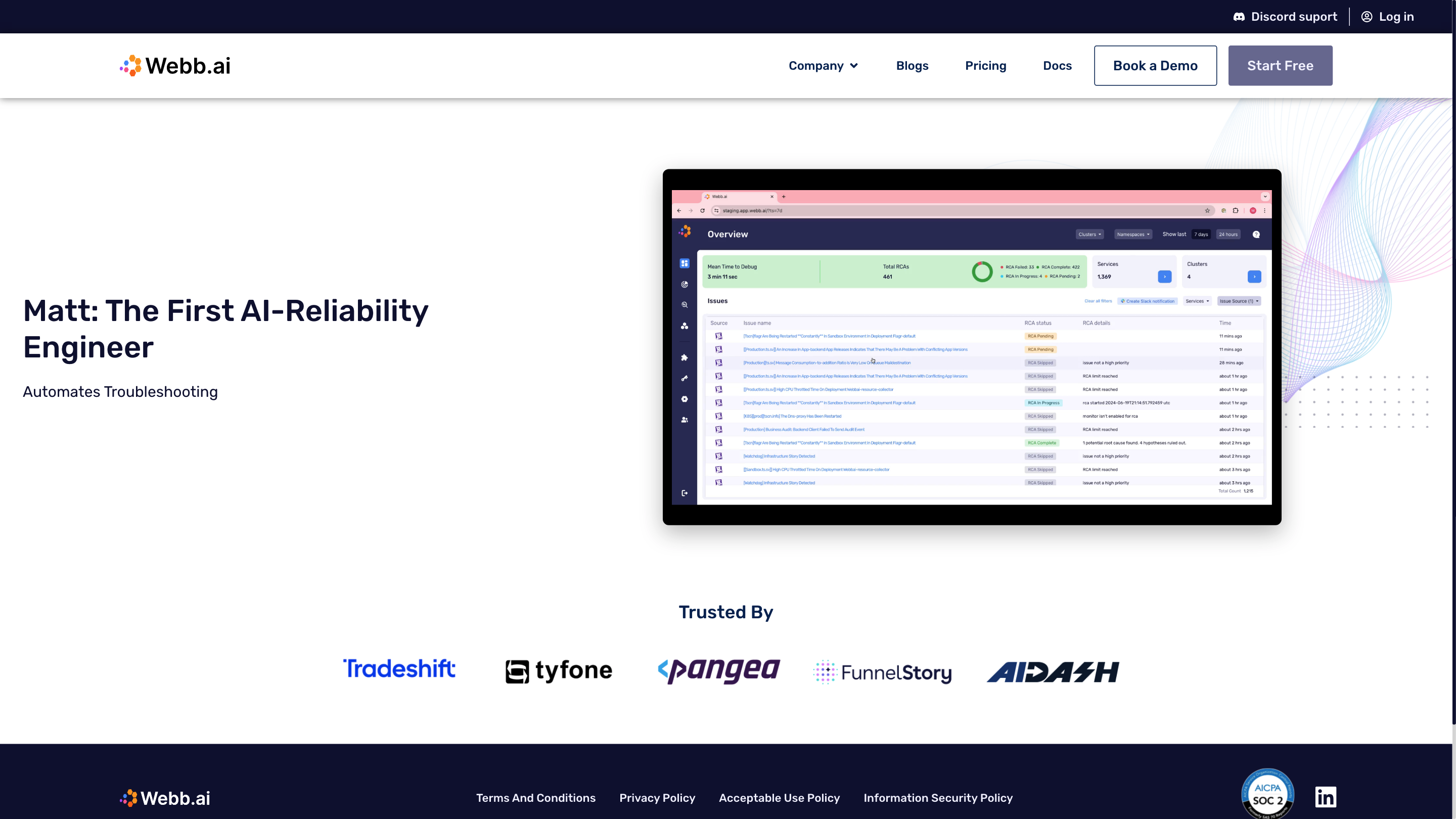Webb AI
Open siteCoding & Development
Introduction
AI-enabled reliability engineer for automated troubleshooting
Webb AI Product Information
Webb.ai: Automated Troubleshooting for Kubernetes
Webb.ai offers an AI-powered reliability engineering solution designed to automate Kubernetes troubleshooting. It targets DevOps, SREs, and platform teams who need faster, data-driven insights into why systems fail and how to remediate issues, especially during off-hours or paged incidents.
Key Capabilities
- AI-assisted troubleshooting workflows for Kubernetes environments
- Insights into root causes and actionable remediation steps
- Designed for 2am paging scenarios to reduce MTTR (mean time to repair)
- Emphasis on reliability engineering, not just incident response
- Early access program and ongoing feature enhancements
How It Works
- Identify the issue or incident scenario you’re troubleshooting (e.g., pod failures, scheduling issues, network errors).
- The AI reliability engine analyzes Kubernetes state, events, and metrics to infer root causes and likely fixes.
- Receive structured, actionable recommendations and potential script or command templates to implement changes.
- Iterate: re-check the cluster state after applying remediation and confirm resolution.
Requirements
- Kubernetes version 1.20 or later
- EBPF-enabled kernel version 5.4 or later
Use Cases
- Rapid incident diagnosis during outages
- Post-incident analysis to prevent recurrence
- Proactive reliability improvements and health checks
- Knowledge sharing through AI-generated runbooks
Safety and Compliance Considerations
- Guidance is intended for production environments; validate remediation steps in staging where appropriate.
- Ensure changes align with your organization’s change management policies.
How to Get Access
- Join the Early Access Program to request access and stay updated on new features.
Core Features
- AI-powered Kubernetes troubleshooting assistant
- Automated identification of root causes and remediation recommendations
- Quick, actionable incident resolution guidance to reduce MTTR
- Progress tracking and iterative verification of fixes
- Early access with ongoing feature updates and improvements
- Support for incident postmortems and runbook generation
- Compatibility with Kubernetes 1.20+ and EBPF-enabled kernels
